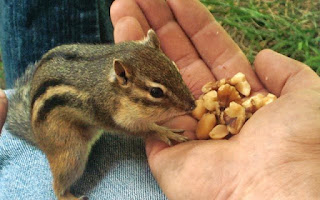Last Sunday, I was invited by our veterinarian Dr. Graywal to attend his Sikh community worship service. A Sikh house of worship is called a gurdwara. Typically, a gurdwara includes a commercial kitchen as well as a hall for community worship and meals.
As I entered the gurdwara, I removed my shoes and washed my hands that reflect the community’s way of showing respect for their scared space. I was next given a cloth to cover my head. Sikhs greet one another bringing their palms together at chest level (known as Anjali) and slightly bow their heads in a humbling and respectful way. They greet one another with the Punjabi salutation—Sat Sri Akal (roughly translated as “Blessed is the person who says God is Truth.”) The essence of this gesture is the belief that the divine exists within each one of us. As Catholics, I like this greeting and might introduce this gesture at all my Masses reminding people that “I see Christ in you.”
Dr. Graywal explained that the word Sikh (pronounced "sick") means 'disciple' or 'learner.' The Sikh religion was founded in Northern India in the fifteenth century by Guru Nanak Dev Ji and is distinct from Islam and Hinduism. Sikhism is monotheistic and stresses the equality of all men and women. Sikhs believe in three basic principles; meditating on the name of God (praying), earning a living by honest means as well as sharing the fruits of one’s labor with others. Sikhism rejects caste and class systems and emphasizes service to humanity.
As I entered the gurdwara sacred space the men were wearing turbans. Turbans are worn to cover their long hair and with respect to God. The Sikh turban (dastar) is a crown of commitment and dedication to serve all humanity. It is an article of faith that represents honor, self-respect, courage, spirituality, and piety.
Salvar Kamees is a Sikh women's wear. Salvars are baggy loose fitting pants with ankle cuffs called ponche. The salvar is worn beneath the kamees, a dress top which is available in as many styles as there is imagination, and color, often decorated with embroidery. The very devout tend to wear simple prints or solid colors with a little embroidery, as an expression of humility.
The Sikh faith is committed to the equality of women, as it defines God as gender neutral, perhaps one of the few major world religions to do so. There is no activity in a gurdwara or within the community that is permitted to a man but not to a woman. There is no religious function from which women are barred at any time of their lives.
Entering the main prayer hall, I felt an uplifting and soothing feeling. Musicians playing traditional Sikh devotional music filled the room with a beautiful sublime song. Many sat and prayed on rugs on the floor, while others bowed and placed offerings before a raised platform containing the Guru Granth (the holy book). I sat cross-legged and felt the peace and calm, being careful not to point my feet towards nor turn my back on the Guru Granth.
After the service, I took part in the Langar. Langar is a beautiful tradition that takes place every day in every Sikh gurdwara around the world. Langar refers to full vegetarian meals that are funded and prepared completely by volunteer worshipers and served to anyone who wishes to partake in them. The kitchen was a hum of activity as people stirred giant pots filled with lentils. Back in the sacred space of worship, people shared in the great meal, and everyone pitched in to the dishes. The sense of true community and care was profound. As Catholics, we enjoy our Lenten Friday fish meals or once a year Spaghetti dinners. Perhaps, we need to start offering breakfast buffets or dinners after Sunday Mass to reflect our love for one another.
Lord, I pray for all my Sonshine Friends who are Baptists, Lutherans, Jewish, Sikhs , Roman Catholic, Polish National Catholic and all faith traditions who gather each week to give you praise and thanks. My humble thanks to Dr. Graywal and all the members of his faith community who graciously welcomed me to their worship service and sent me home with a lots of homemade Sikh foods.









